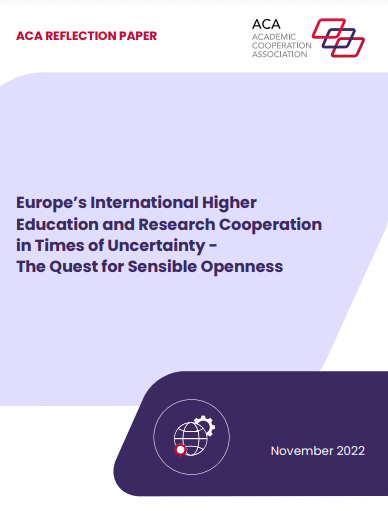Stay in the loop! Subscribe to our mailing list
 International cooperation in higher education and research has recently been challenged by unprecedented levels of uncertainty due to a growing number of diverse, overlapping and successive crisis situations (health, political, military, energy and environmental) pouring in with increasing speed, and that are often very interconnected.
International cooperation in higher education and research has recently been challenged by unprecedented levels of uncertainty due to a growing number of diverse, overlapping and successive crisis situations (health, political, military, energy and environmental) pouring in with increasing speed, and that are often very interconnected.
These new crises have significantly affected opportunities for cross-border collaboration, conditioning them in an unprecedented way in some cases. Such unforeseen, challenging developments have led to many new critical questions at ACA and within ACA member organisations, most of which have no straightforward answers:
Consequently, and in order to contribute to current discussions on the role, nature and consequences of international cooperation in higher education and research the association, ACA has published a reflection paper, based on the Association and its members’ unique position as experienced national-level policy actors, funding and bridge building organisations. This reflection paper puts forward five broad principles to underpin Europe’s future global cooperation in higher education and research.
Read full paper here